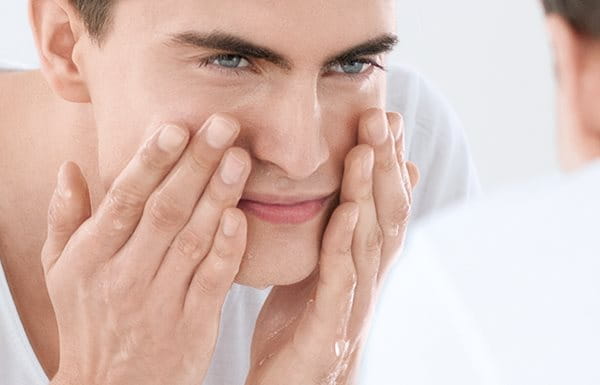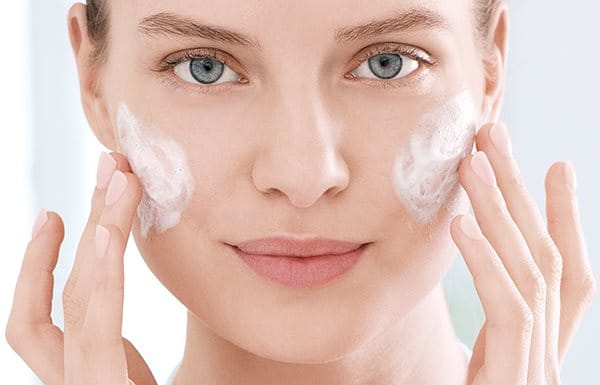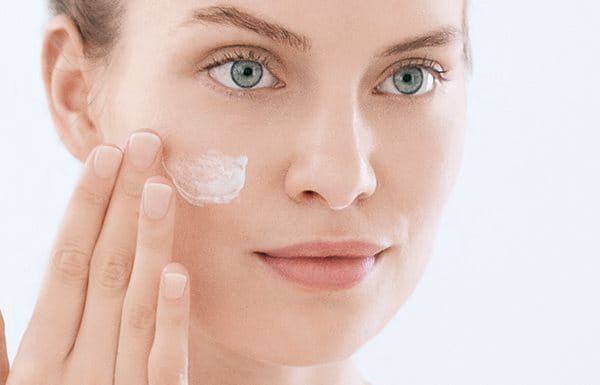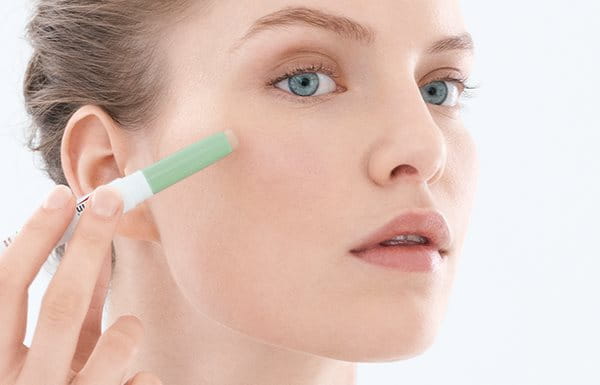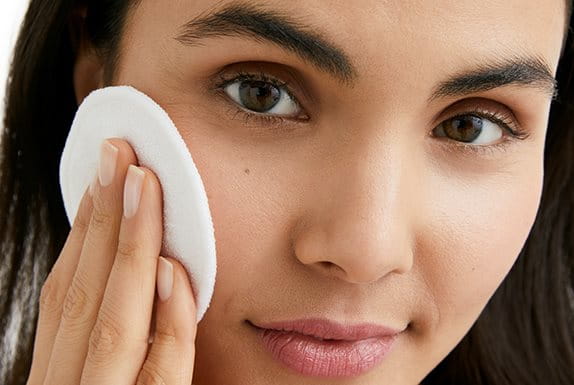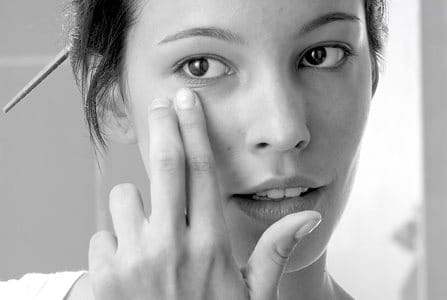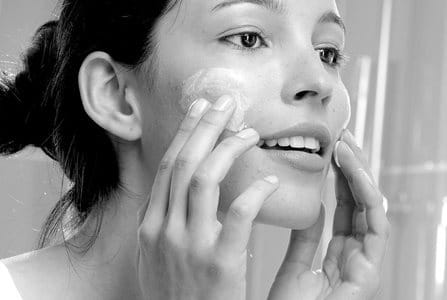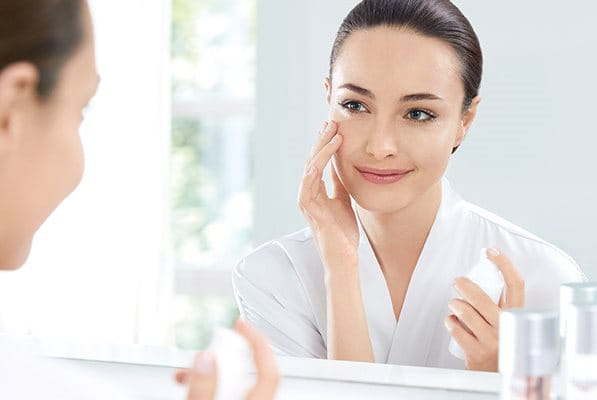“People who don’t wash get spots”. You’ll have heard that before, but it’s not that straight forward. Acne is primarily caused by hormones and even the cleanest people get acne too. Find our more in acne and hormones.
That said, a conscientious, daily skincare routine − using cleansing and care products specially formulated to meet the needs of your skin − will help to reduce pimples and keep your blemish-prone skin under control.
This article explains what you should look for when choosing skincare products and recommends a routine to suit your skin which changes depending on whether or not you are undergoing medical acne treatment. We also look at some of the other steps you can take to help care for blemish-prone skin.
Why do I need a special skincare routine?
If your skin is blemish- or acne-prone it will benefit from a regular skincare routine using products that have been specially formulated to address your skin’s particular needs.
When it comes to choosing the right skincare products it might help to understand a little bit about how blemishes form.
There are many complex and interrelated factors involved in their development - inflammation, seborrhea, hyperkeratosis and bacterial growth - and you can read more about each of these as well as how they work together in acne in general/the development of acne, and you can find out more about how micro-inflammation is the root cause of acne in behind the science of micro-inflammation.
The most appropriate products for blemish- and acne-prone skin will address all these factors to support your skin, reduce blemishes and prevent them from reappearing.
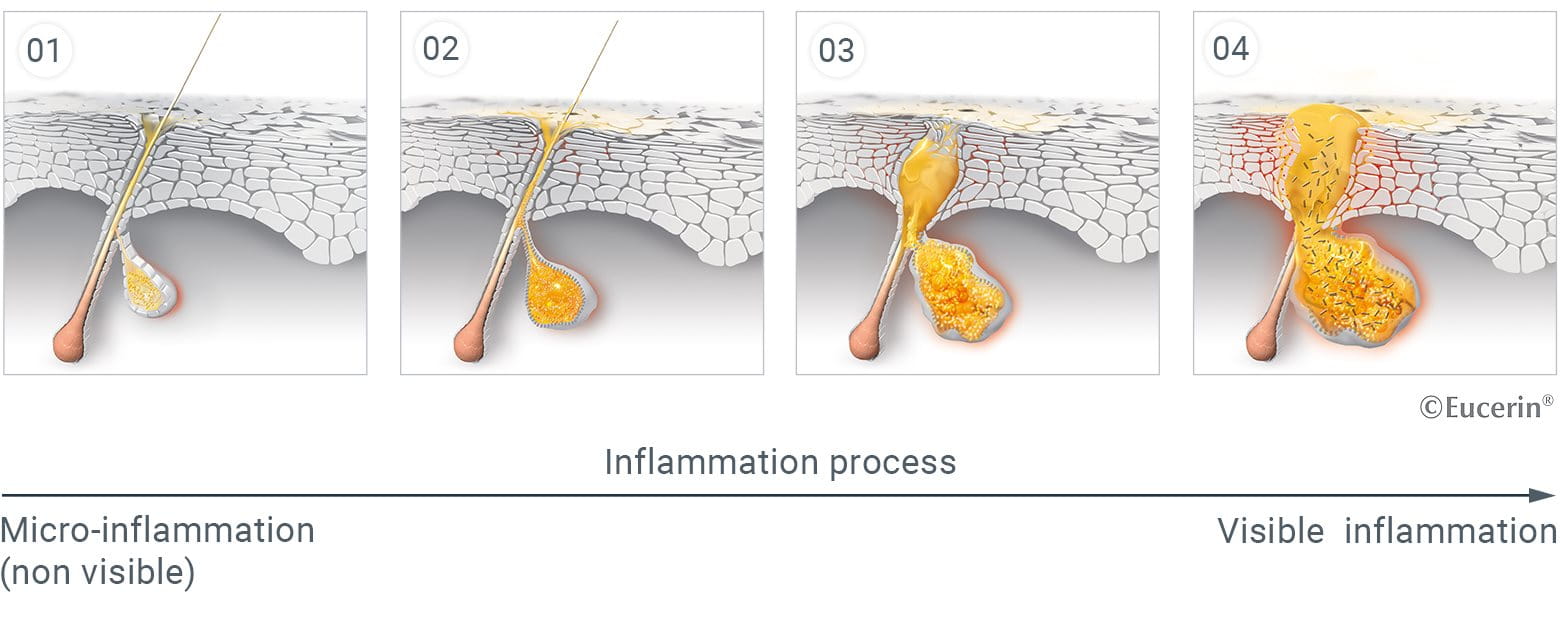
If your skin is blemished or acne-prone it will benefit from cleansing and care products that have been specially formulated to suit its needs. Look out for the following properties on pack:
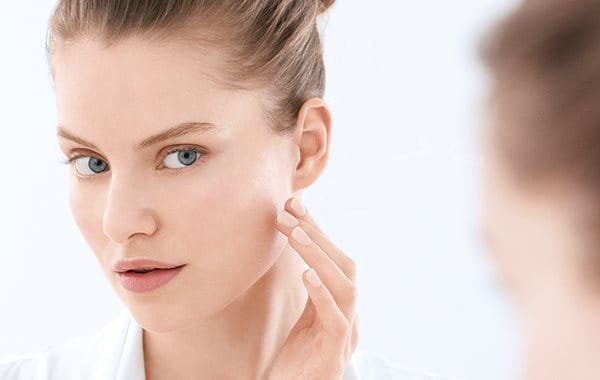
Soap-free
Healthy skin naturally has a pH that is mildly acidic. Blemish-prone skin tends to be more alkaline and soap has an alkaline pH so it further upsets skin’s natural balance making it more prone to infection.
Non-comedogenic
A non-comedogenic product is one that does not contain ingredients that are likely to clog pores (a clogged pore is also known as a comedone). Clogged pores lead to the formation of blackheads, whiteheads and pimples.
Non-greasy
Blemish- and acne-prone skin already produces too much sebum so avoid greasy products.
Comedolytic
A comedolytic product is something which breaks up comedones (blackheads and whiteheads) and opens up clogged pores.
Keratolytic
Keratolytic products dissolve hard plugs of skin and promote the natural process by which skin sheds its dead skin cells.
A mildly acidic pH
Blemish-prone skin is more alkaline than normal skin which has a mildly acidic pH. Products for blemished skin benefit from being mildly acidic as this helps to return skin to its optimal pH.
All products in the Eucerin DermoPURIFYER range have been specially formulated for blemish- and acne-prone skin. There are also products in the Eucerin anti-age and sun protection ranges that are non-comedogenic and non-greasy and ideally suited to oily skins.
Ingredients that can help reduce and prevent blemishes
Peeling agents
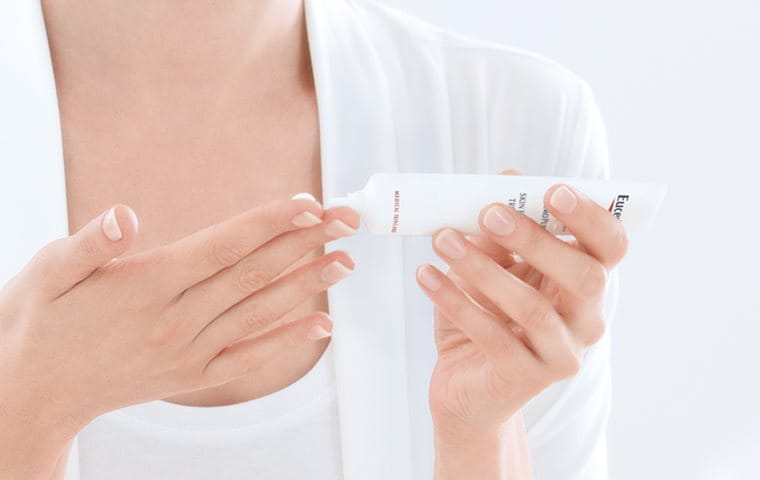
The most commonly used peeling agents in skincare products are AHAs (Alpha Hydroxy Acids) which are also known as fruit acids. In the Eucerin DermoPURIFYER Skin Renewal Treatment we use combination of Glycolic Acid (an AHA), Salycylic Acid (a Beta Hydroxy Acid or BHA) and Gluconolactone (a PHA or Polyhydroxy Acid). This innovative and effective 10% Hydroxy Complex opens the pores, promotes the scaling off of dead skin cells and supports skin renewal.
Salicylic Acid
Salicylic Acid is particularly effective at fighting blocked pores and bacterial growth. It is a Beta Hydroxy Acid which acts keratolytically (meaning it removes dead skin cells and softens skin to help prevent blocked pores) and comedolytically (which means it opens up clogged pores). Salicylic Acid reduces blemishes and prevents the build-up of new blemishes and is a key ingredient in several of the Eucerin DermoPURIFYER formulas.
Sebum regulating ingredients
Look out for products that are able to regulate the amount of sebum your skin produces. Ingredients such as L-Carnitine help cells to absorb free fatty acids where the mitochondria turn them into energy. This reduces the amount left over to form sebum, thereby controlling sebum production. Mattifying particles, when added to formulas, can also help to absorb any excess sebum on the skin. L-Carnitine and mattifying particles are part of the sebum regulating technology used in several of the Eucerin DermoPURIFYER products.
Licochalcone A
Licochalcone A is a powerful antioxidant and anti-inflammatory extracted from the root of the Chinese Liquorice plant. It reduces redness, helps to soothe inflammation and is a key active in Eucerin DermoPURIFYER Skin Renewal Treatment, Eucerin Adjunctive Soothing Cream and Eucerin DermoPURIFYER Mattifying Fluid.
Mild surfactants
Cleansing is an important step to caring for blemish-prone skin, but harsh cleansers can strip skin of its natural balance and exacerbate symptoms.
Look out for mild, soap-free cleansers such as the Amphoteric surfactants and APG Complex used in the cleansers in the Eucerin DermoPURIFYER range.
SymSitive*
SymSitive* regulates the sensitivity of hyper-reactive skin sensory fibres, offering immediate and long-lasting relief from tingling, stinging and burning. As well as calming skin it increases skin-tolerance and, over time, helps to make skin more resistant. It is a key active in Eucerin DermoPURIFYER Adjunctive Soothing Cream.
* registered trademark of Symrise AG, Germany
Ceramides
These important lipids strengthen the skin barrier helping to prevent moisture loss and keeping out irritants that can cause inflammation and itching. Eucerin uses synthetic Ceramides that are biologically-identical and that enhance skin’s natural barrier – locking in moisture and preventing dryness and irritation.
Lactic Acid
Lactic Acid (also known as Lactate) is part of skin’s Natural Moisturising Factor (NMF) and a key component of skin’s protective acid mantle which regulates the pH value of skin. It absorbs and retains moisture within the outermost layer of the skin and so plays a vital role in skin condition. It is also comedolytic.
What else can I do to help my blemish-prone skin?
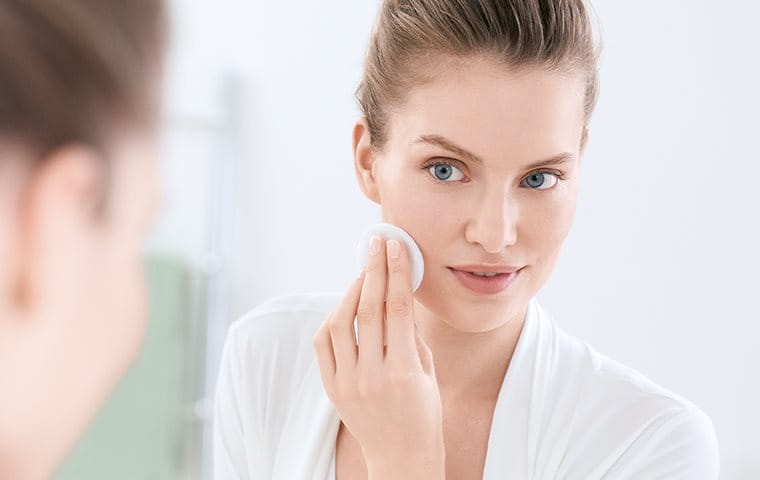
Leave pimples alone
Try to keep your hands away from your face as picking blemishes spreads bacteria and makes things worse not better.
Shave carefully
Take care when wet or dry shaving so as not to be too rough on your blemish-prone skin.
Steam
Facial steaming and saunas can help to open up and unblock pores.
Keep bacteria to a minimum
Clean your mobile phone, pillow cases and towels regularly to help reduce bacteria. Find out more in tips for your home.
Look after yourself
Exercise, a good night’s sleep and a healthy, balanced diet will help you to stay healthy and positive overall, reduce stress (which can trigger hormones and exacerbate acne) and improve your skin’s natural resilience. Try to stop smoking too.
Our brand values

We deliver a holistic dermo-cosmetic approach to protect your skin, keep it healthy and radiant.

For over 100 years, we have dedicated ourselves to researching and innovating in the field of skin science. We believe in creating active ingredients and soothing formulas with high tolerability that work to help you live your life better each day.

We work together with leading dermatologist and pharmacist partners around the world to create innovative and effective skincare products they can trust and recommend.



